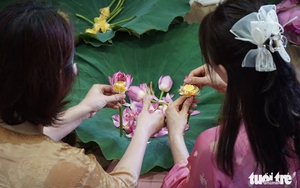
Fragrant revival: Hanoi’s West Lake lotus blooms again after years of decline
After years of shrinking lotus fields along the banks of Hanoi’s iconic West Lake, a fragrant revival is quietly taking root.
In what local officials call a cultural and economic boost, more than 7.5 hectares of land has been newly cultivated with the rare Bach Diep lotus, a prized hundred-petal variety long associated with the lake’s tradition of lotus tea making.
The expansion follows years of decline in planting area, prompting a coordinated effort between local authorities, agricultural experts, and residents to restore the iconic flower.
This year, not only has the newly planted area yielded encouraging results, but the existing five hectares of older ponds have also delivered a bumper crop.
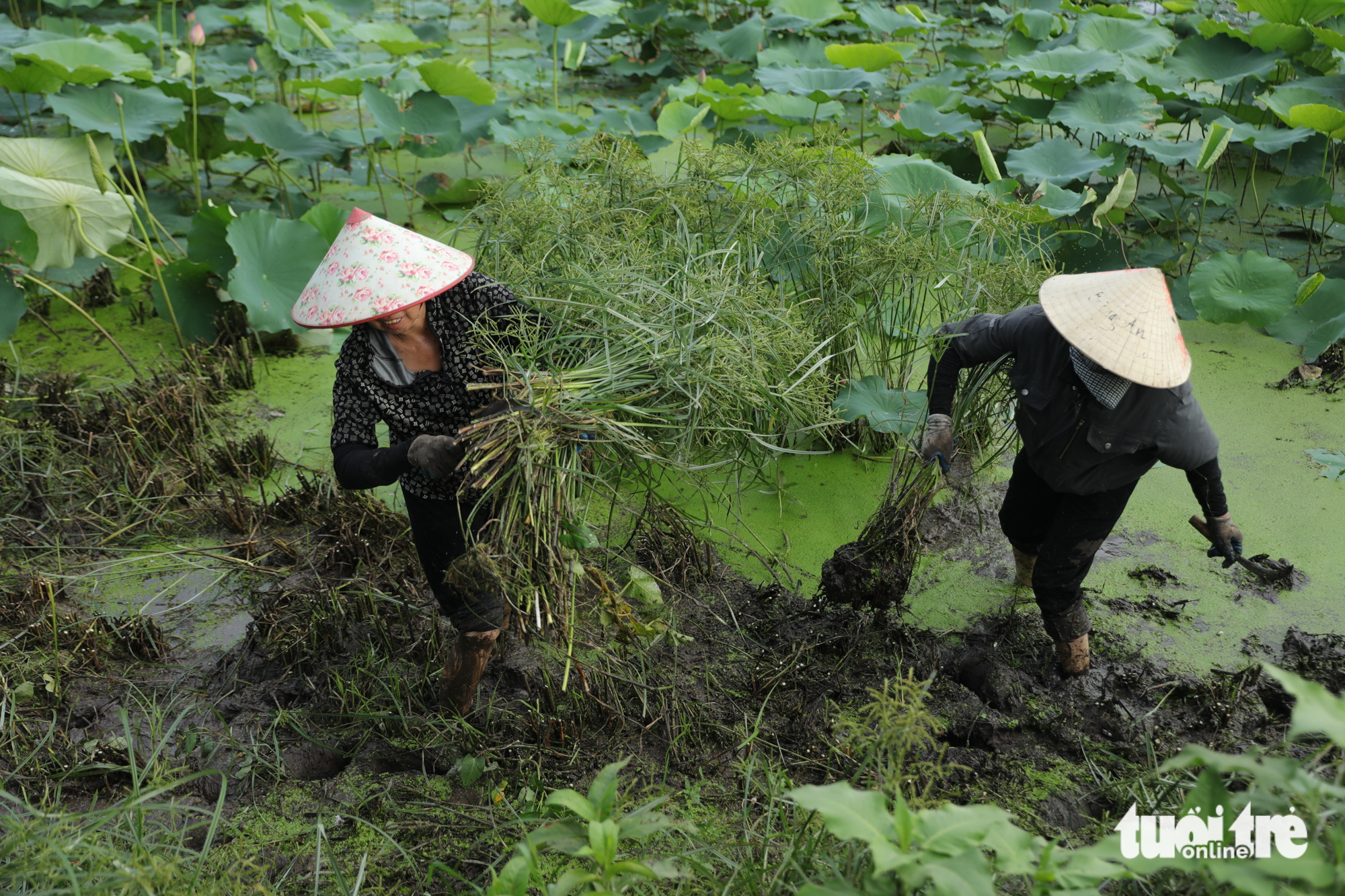
Lotus farmers clear invasive weeds from a lotus pond to maintain optimal growing conditions in Hanoi’s West Lake. Photo: Tuoi Tre
“This variety of lotus only thrives in the soil conditions unique to West Lake,” said Chu Duc Trong, 62, a resident of Tay Ho Ward with nearly three decades of experience in making lotus-infused tea.
“We’ve tried growing Bach Diep elsewhere, but the color and fragrance never match expectations.
“This year’s harvest is one of the best in recent memory.”
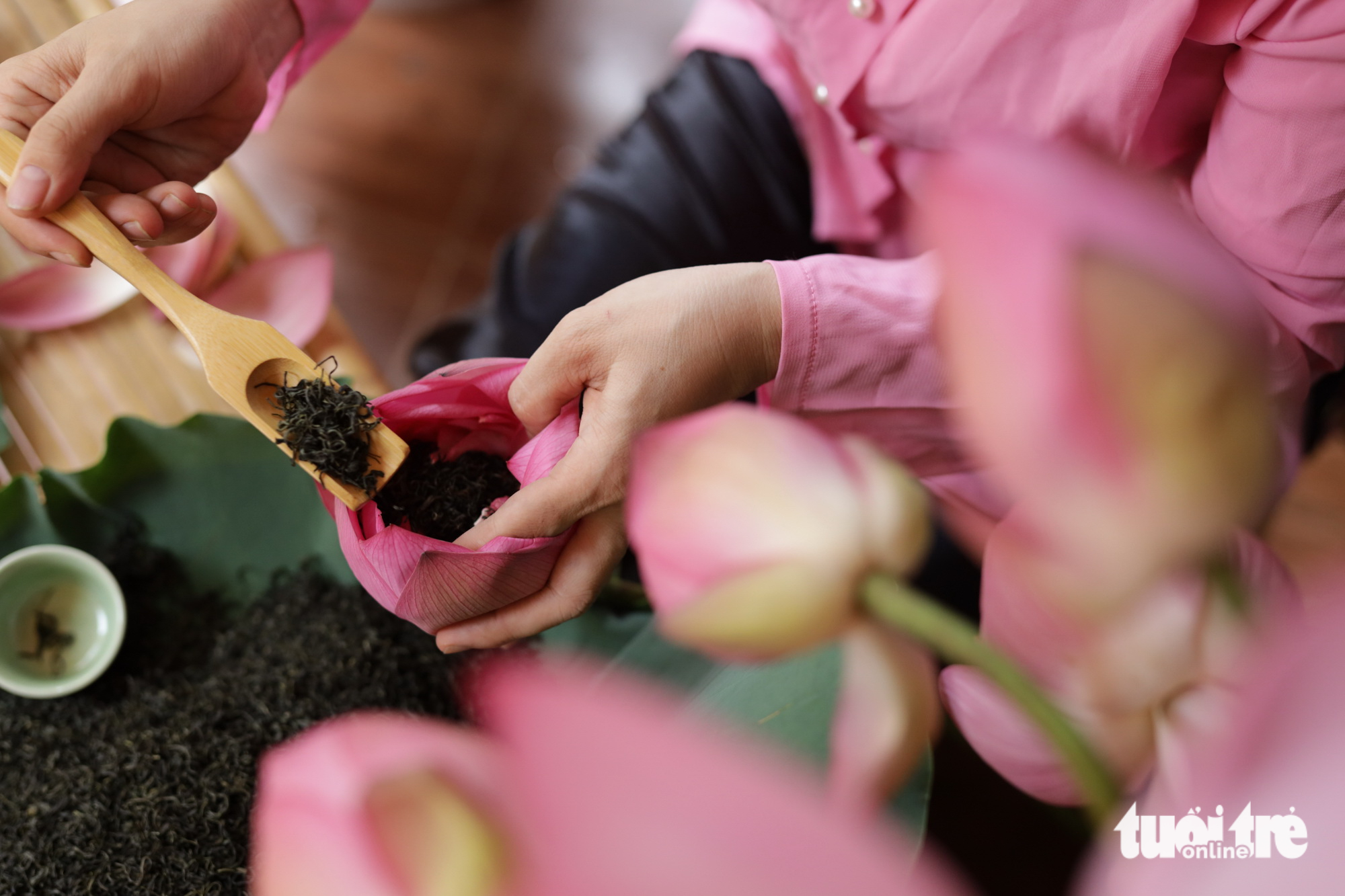
Van Anh, with 10 years of experience in tea making, places dried tea leaves into high-quality Bach Diep lotus flowers for scenting. Photo: Tuoi Tre
The blossoms harvested from West Lake are primarily used for scenting dried tea leaves.
A fresh lotus flower sells for about VND40,000-50,000 (US$1.5–2).
But the premium version — made by delicately extracting the lotus stamens and infusing them with dried Thai Nguyen green tea through multiple rounds of curing and drying — can cost VND10-15 million ($382–574) per kilogram.
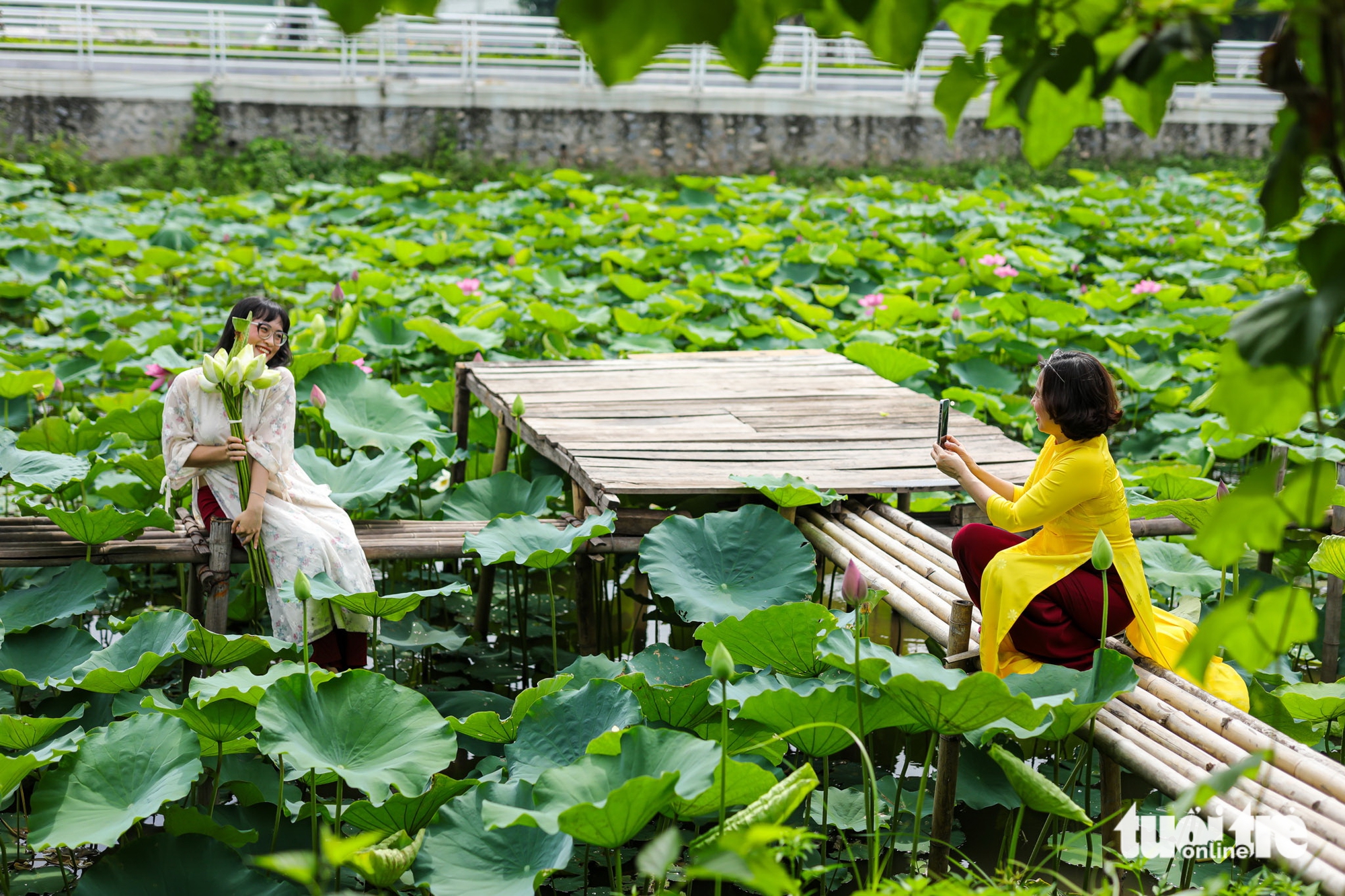
Visitors pose for photos at a lotus pond on West Lake in Hanoi. Photo: Tuoi Tre
Nguyen Dinh Khuyen, Party secretary of Tay Ho Ward and former chairman of the now-defunct Tay Ho District following a recent administrative reorganization, told Tuoi Tre (Youth) newspaper that the new 7.5-hectare planting effort was launched in 2024 to counter the ongoing loss of cultivation area.
“Even with the expansion, supply still can’t meet market demand,” Khuyen said.
“Bach Diep is a rare lotus — each flower has around 100 petals, a beautiful hue, and a uniquely aromatic stamen.
“Our total 12.5 hectares of lotus now brings in around VND50 billion [$1.9 million] annually and provides jobs for more than 100 people.”
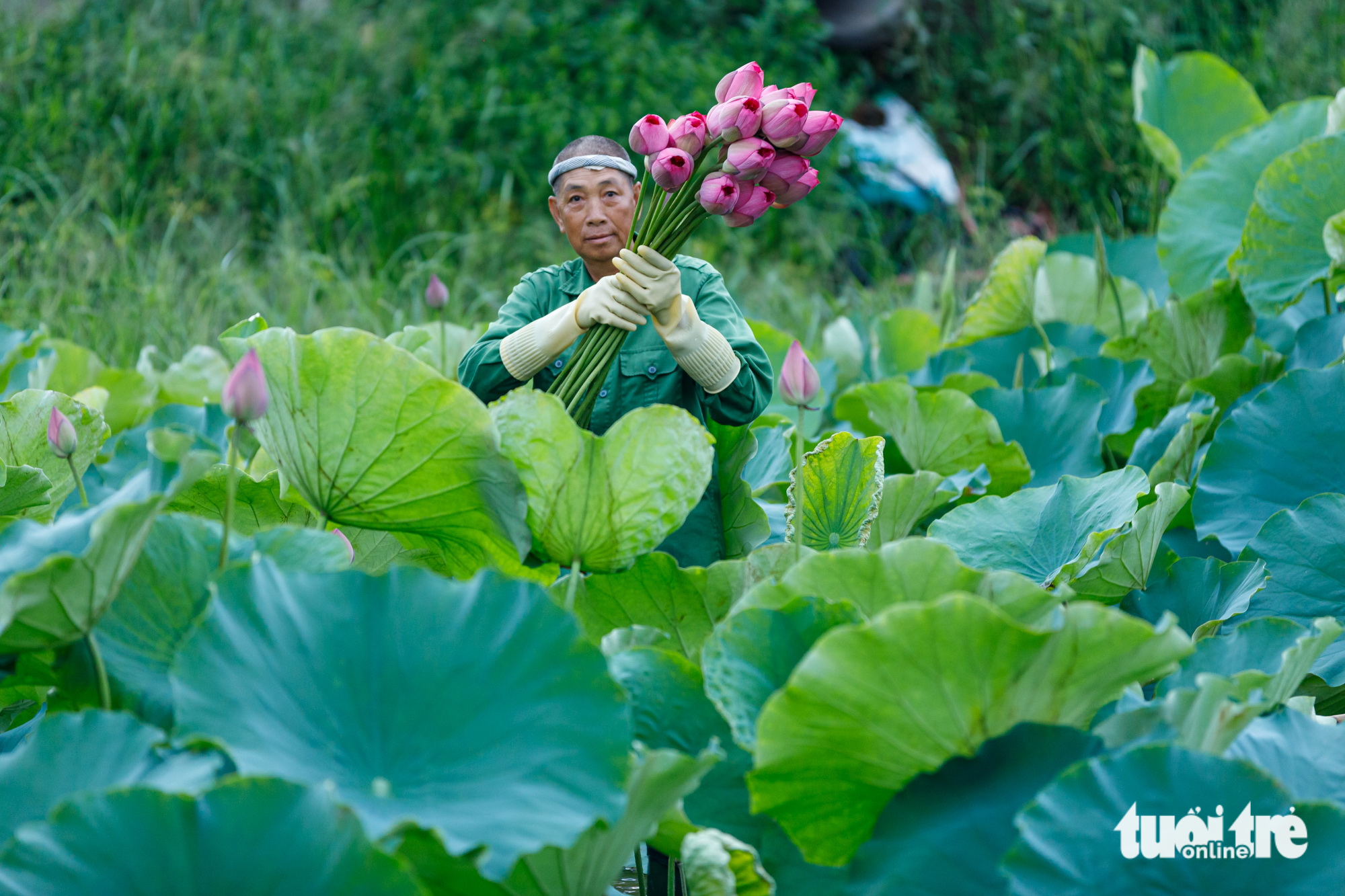
Ho Van Duc, 65, picks lotus flowers early in the morning — a daily task he has done for more than two decades. Photo: Tuoi Tre
Beyond its economic value, the Bach Diep lotus holds deep cultural significance.
Its resurgence is seen not just as a revival of traditional craftsmanship, but also as a draw for both domestic and international tourists eager to experience a slice of Hanoi’s heritage.
To ensure healthy growth, lotus growers regularly remove invasive weeds and manage water levels carefully.
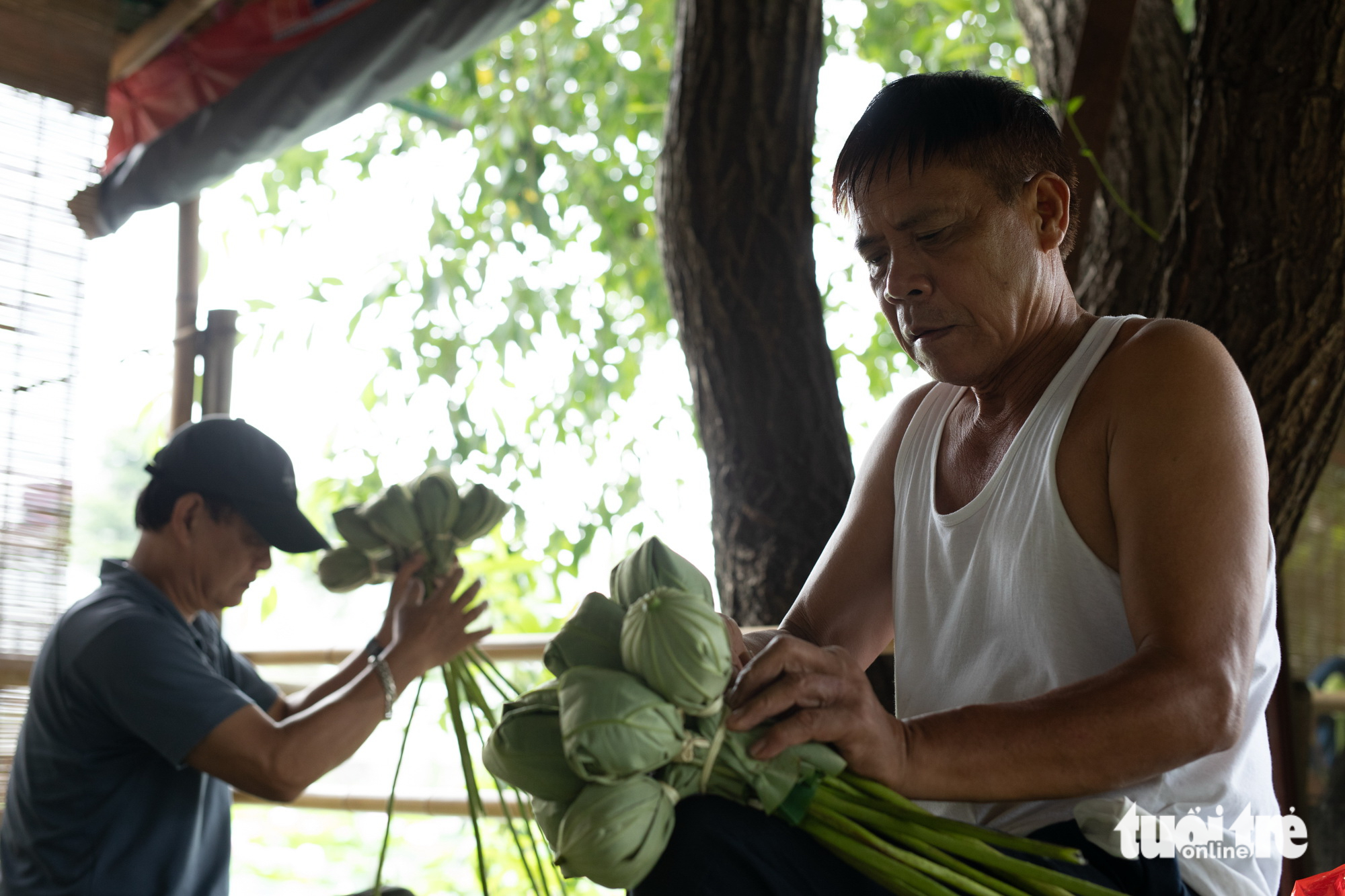
Chu Duc Trong, 62, who has been making lotus-scented tea for nearly 30 years, ties bundles of lotus flowers. Photo: Tuoi Tre
Harvesting begins in the early morning, when the scent is most intense.
The flowers must be processed before 10:00 am to preserve their fragrance and prevent the petals from closing.
Locals typically use high-quality Thai Nguyen green tea as the base for their lotus-scented brews.
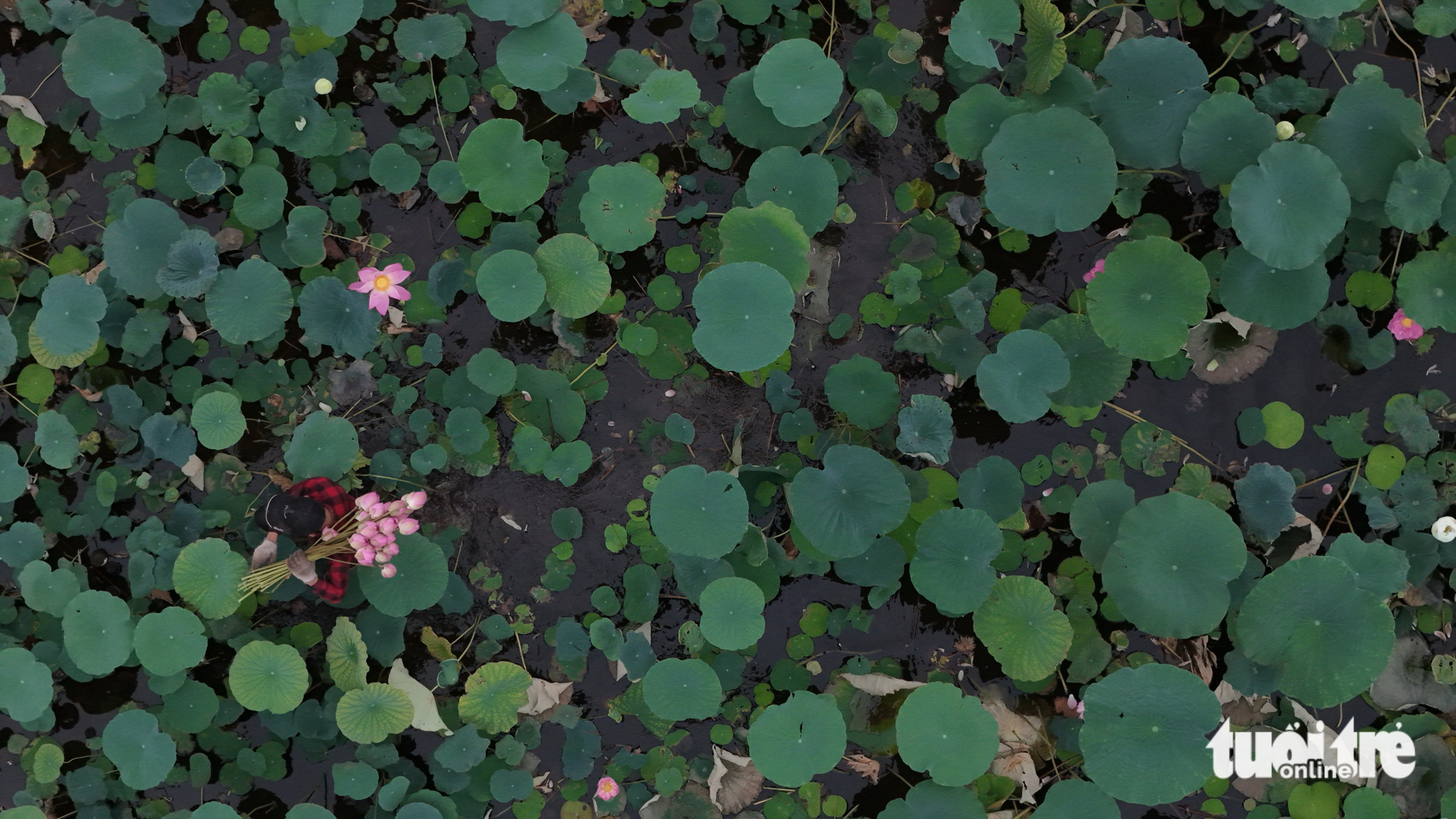
A farmer harvests lotus flowers at a pond on Hanoi’s West Lake. Photo: Tuoi Tre
One popular method involves placing dried tea directly inside fresh lotus blossoms, allowing the leaves to absorb the flower’s delicate aroma.
With each bloom, the Bach Diep lotus carries not only a sweet scent but also a reminder of Hanoi’s enduring traditions — and the resilience of a community determined to protect them.
Bao Anh - Danh Khang - Quang The / Tuoi Tre News
Link nội dung: https://news.tuoitre.vn/fragrant-revival-hanois-west-lake-lotus-blooms-again-after-years-of-decline-103250707110746633.htm
